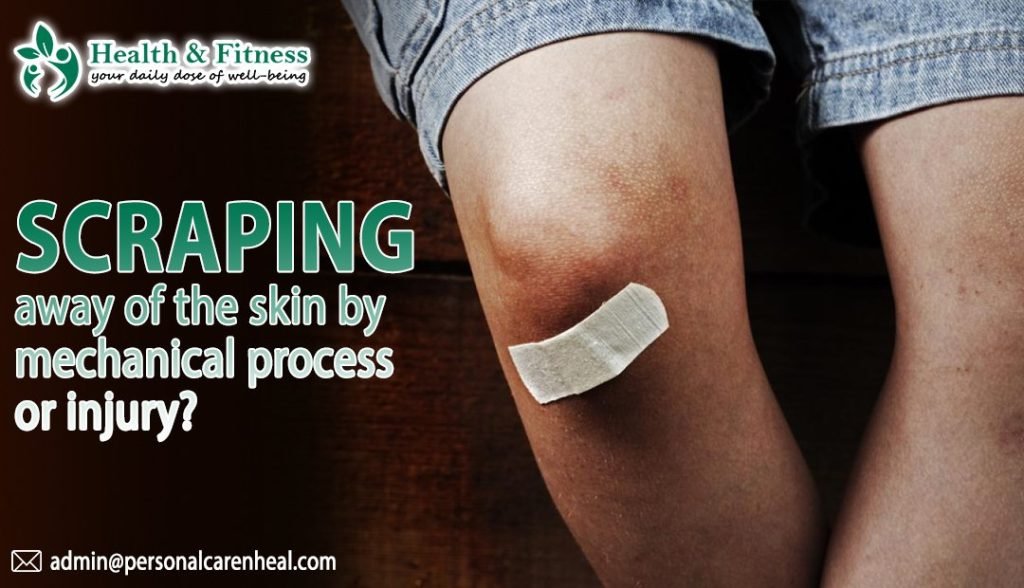
Are you looking for abrasion, the term that means scraping away of the skin by mechanical process or injury is? Well, when a person’s skin rubs against a rough material or surface that causes abrasion. Dive into detail to get further information on abrasion.
What is an Abrasion?
Generally, abrasion is the term that indicates the open wound, which is caused when skin scratches against a rough surface. This is known as a graze or a scrape. When your skin rubs against the hard ground, it may be known as road rash.
With the help of debridement, your dead or infected skin tissues will be removed to heal a wound. It also helps in removing external material from the tissues. The debridement process is beneficial in removing bad tissues, so the wound can heal.
Abrasion can happen on the:
- Knees
- Ankles
- Elbows
- Shins
- Upper extremities
However, abrasion doesn’t cause much bleeding, only if scraping skin is normal. Therefore, it can be treated at home.When do You Need Debridement?
It is not necessary to follow the debridement process for small wounds. But in critical cases, you can choose the debridement process. Especially, when your wounds are not healing, and the wound is getting worse day-by-day. Sometimes, there is a risk of skin infection from a wound, so in that case, your wound may require debridement.Treating Abrasion at Home
When scraping away of the skin by mechanical process or injury is small then you can treat it at home. Small cuts or scrapes are minor things for children and youngsters. Generally, in this case when the upper layer of your skin rubbed off, and your skin needs to be treated.Abrasion can be treated at home by following below steps:
Assess Your Wound
- If your wound is bleeding continuously for 10 minutes, then try to call the nearest emergency department.
- If your wound is normal, then you can treat it at home.Clean the Wound
- Before touching your wound, make sure to clean your hands properly.
- Clean your wound with cool to lukewarm water. But don’t use alcohol or hydrogen peroxide on the wound. Because it can harm the tissues.
- Gently clean dirt from your wound, but don’t scrub.Stop Bleeding
- Use a clean towel over your wound and apply pressure to stop bleeding.
- If gauze soaks, then you can use more on the top.
- Apply pressure over it for at least two minutes when the bleeding stops.Heal the Wound
- Use antibacterial cream on the affected area, such as bacitracin or Neosporin to the wound. (seek help from a doctor)
- If your wound is not in a worse situation, then you can leave it open.
- If abrasion is on your hands, then there are higher chances that your hands will get dirty. So, cover it with a simple bandage.
- Change the bandage or dressing every day.After following all of the above methods, if you still find that your wound is not recovering, then seek medical help.
What do the Debridement Procedure Includes?
The preparation of debridement will depend on your: - Wound condition
- Type of debridementPreparation of debridement may include:
- Assessing the wound
- Pain medication
- Local or general anesthesiaRecovery Time after Debridement Surgery
Mostly, recovery takes 6 to 12 weeks after debridement surgery. The time of recovery depends upon the location and condition of the wound. Apart from this, complete wound care is important for a smooth recovery. You need to: - Eat Healthy Food
To heal any wound, you need to eat healthy and nutrient-rich food. - Don’t Smoke
When you smoke that means you are making it difficult for oxygen and nutrients to reach the wound. Smoking slows down the healing process.Debridement Complications
Complications may include: - Bleeding
- Irritation
- Allergy
- Pain
Bacterial infectionIf you see an infection, then contact your doctor. There are some signs of infections that may include: - Redness
- More pain
- New discharge
- Fever
- Excessive bleeding
- Bad odor
- SwellingWhen does the Wound Start to Recover?
Small cuts can be cured within a week. The scab provides protection to the wound from germs and dirt when new skin starts growing. Once the wound is healed, you don’t need to use a bandage over it. Even though the wound may itch, but make sure not to touch your wound or scratch it.Summing Up
If your wound is not getting healed properly, then you need debridement. This process helps in healing the wound. Many of you may have more than one abrasion in life, which is a common injury. Proper care can prevent infection, scarring, and further injuries.
During the healing process, a scab will form on the wound, so don’t scratch over the scab.


